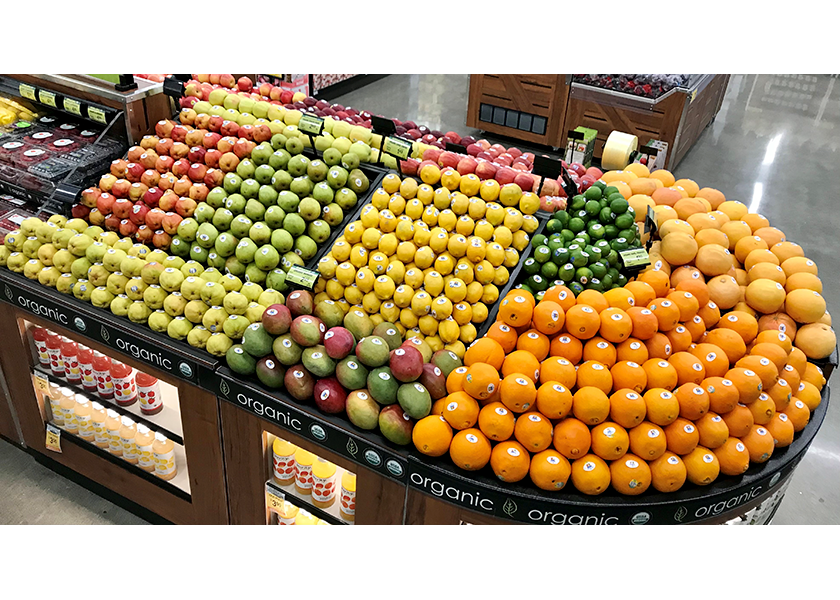PMA speaks up for PLU stickers

The Produce Marketing Association and the International Federation for Produce Standards have gone to bat for PLU stickers as environmental groups and some legislation target them for elimination.
The Sustainable Packaging Coalition released in May a three-part series on why it believes PLU stickers are “well positioned to become the ‘next straw’ in the fight against single-use plastics.” The Break Free From Plastic Pollution Act, a bill sponsored by Sen. Jeff Merkley (D-Ore.), also calls out PLU stickers as problematic. Legislation in Belgium, France and New Zealand has also targeted PLU stickers.
Ed Treacy, vice president of supply chain and sustainability for PMA, sent a letter May 19 to leaders of the Senate and House committees on agriculture to explain the value of PLU stickers for the produce industry and the expected consequences if suppliers were forced to move away from them.
The proliferation of fresh produce SKUs in the last decade, especially in the high-value organic category, has made correct item identification at checkout more important than ever. Because retailers are paying more for those products, they have to be able to ensure the correct ring at the register.
Correct item identification depends on the use of PLU stickers or packaging, so taking away PLU stickers will lead to more packaging, Treacy said.
“The intent is to have less plastic in the world, and regulation on PLU stickers banning them will actually have the opposite effect because we’ll end up like Europe where they put two tomatoes in a clamshell,” Treacy said. “We don’t do that here; we pile them high and watch them buy, we sell them in bulk, but if you’re going to do that, you need to have a sticker to tell the cashier the difference between a hothouse roma and beefsteak tomatoes because they retail for different prices.”
Laser etching and ink labels have been trialed by some suppliers in Europe as alternatives to PLU stickers. The DataBar barcodes required by many retailers, however, cannot be produced using those methods with the quality required for scanners to read them, Treacy said.
Outlook
Rather than move away from PLU stickers, the industry would prefer to see a cost-effective home compostable option. Right now, one component of the PLU sticker is the main hurdle.
There are three parts to the PLU sticker: the ink, the substrate and the adhesive. The adhesive poses the biggest technical challenge because it has to be sticky enough to keep the substrate affixed to a vast variety of fresh produce items, which are kept at different temperatures and humidity levels throughout the supply chain as needed for quality and shelf life.
“We’ve got glues that are compostable but they don’t keep the stickers on high-humidity products all the way to retail, or we have glue that works but it’s not home compostable,” Treacy said. “There are industrially compostable solutions out there, but these regulations that we’re opposing dictate that it be home compostable.”
The industry is confident that a solution will be found.
“If we’re just changing the glue on the label, then we don’t need to refit tens of thousands of packing houses with new different types of labeling equipment or tattooing or laser,” Treacy said. “We already have billions and billions of labels that are applied today. We just need to get that label to be home compostable, and we’re on a path there now.”







